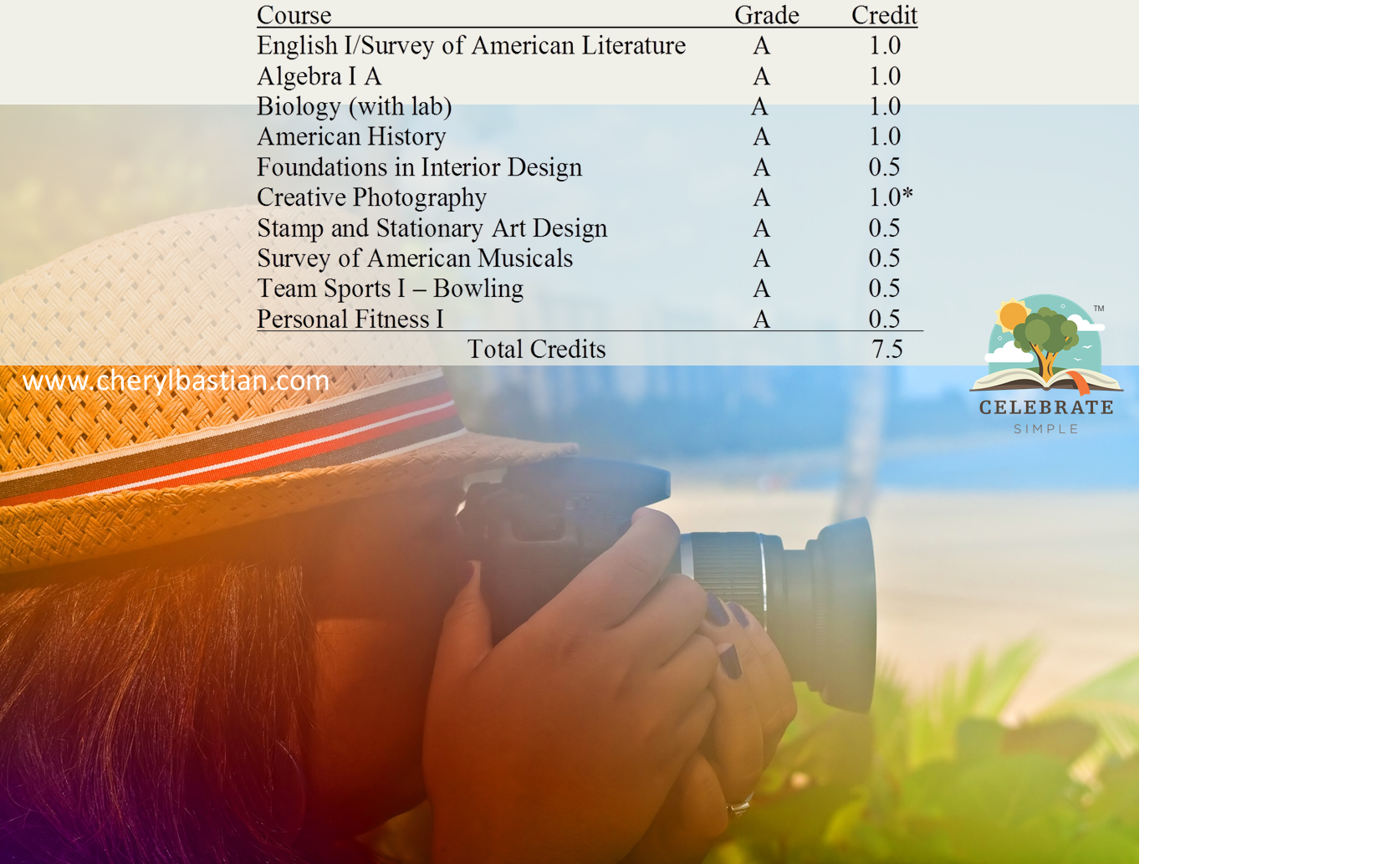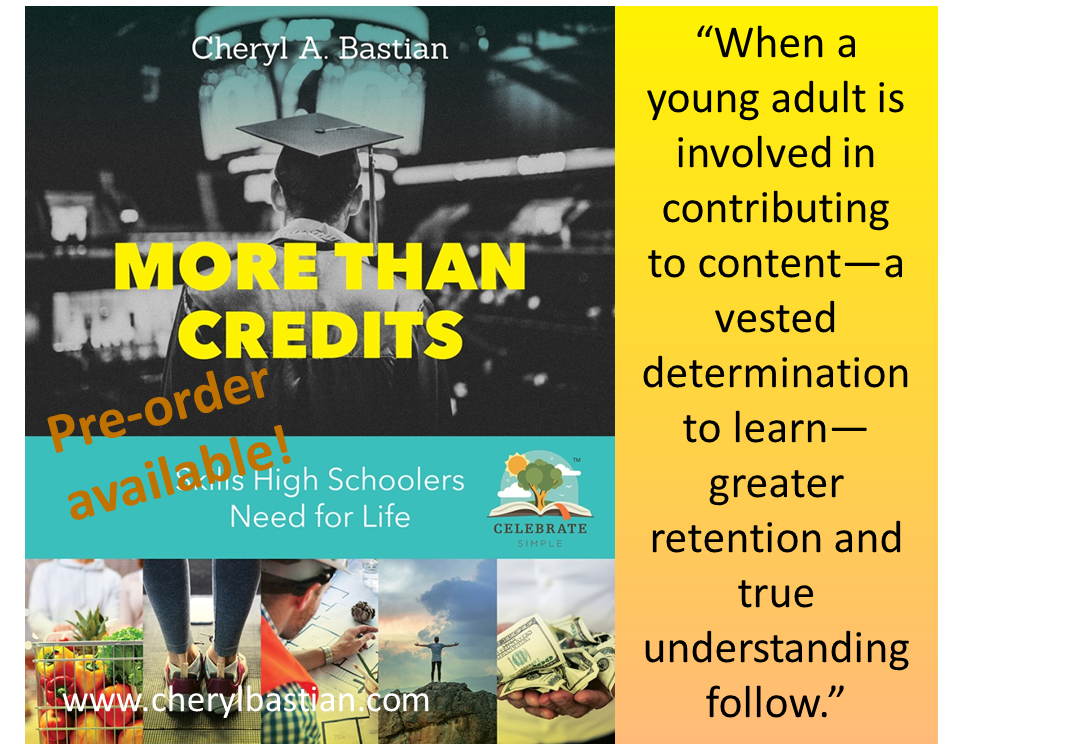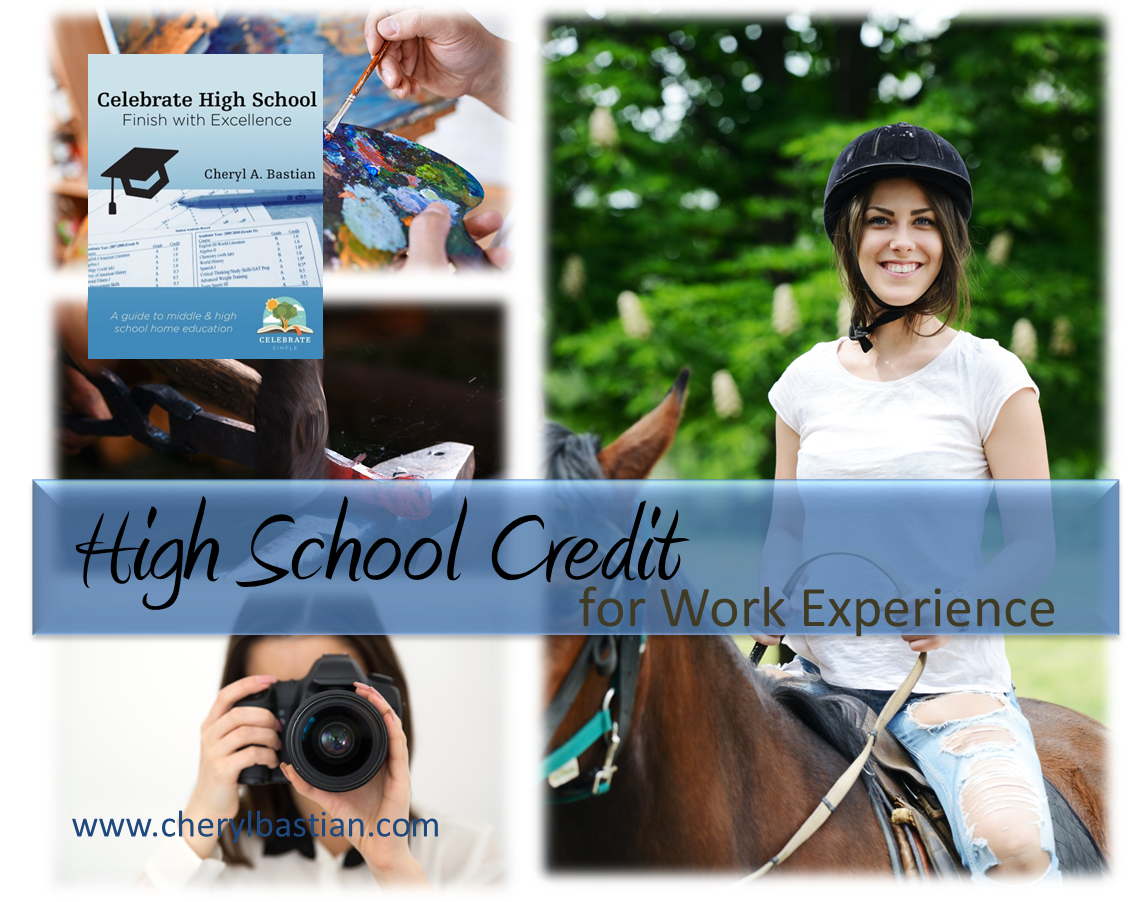The Power of Experience: Life Beyond the Credits
/“What exactly do you mean by More than Credits”?
The title of my high school book has raised thoughtful questions.
l like questions. Questions keep us—parents and learners—pondering, learning, and engaging in dialogue. Questions also keep us processing through our worldview and our thoughts; what matters and prayerfully seeking how to best foster the giftings and interests of our children and teens (even when that looks different than what we envisioned). We should be teaching and modeling for our children the same: pondering, learning, and engaging.
Questions are good. I am glad people are asking.
How did you come up with the title of your book?
The title blossomed from conversations; the dialogues Mike and I have with parents at conferences, workshops, evals, and consults. Our educational backgrounds, research, and personal and professional experiences also weighed heavily in the decision. Mike’s been teaching middle school history for 33 years. My background (aside from homeschooling 27 years) is early childhood education. Together, we’ve graduated four learners from home—two earned graduate level degrees and two are finishing undergrad course work. In addition, we’ve mentored and coached hundreds of families over the past 26 years. We study education, family, and parenting; research and read. Hence, there’s a deep foundation of experience behind why I titled the book More than Credits: Skills High Schoolers Need for Life.
We’re quite familiar with the lack of equipping today’s young adults face. Many are full of knowledge, yet lack practical life skills, problem solving strategies, time management, and experience.
“In the all-too-familiar pursuit of rigorous courses, grades, and college admissions, young adults often lack the motivation, time, and skills needed to understand who they are, what strengths and gifts they were created with or could develop, and how their uniqueness could influence their future as well as the future of others. ”
Courses matter. More than Credits doesn’t mean core courses don’t have value. Quite the opposite. Courses are integral to college admission, trade school, entrepreneurship, and most of all, life. However, some of the very courses learners need for life are not being taught or are taking a backseat to courses which will not propel the learner forward in the career or field of choice—for example, an taking an extra core course in science (above what is required for college admission) instead of Personal Finance if the end goal is entrepreneurship or a career in finance. In other scenarios, the courses high schoolers are taking are not the best or recommended courses for a field. An example, a rising senior interested in the field of zoology may benefit more from a marine science course with a biologist involved in research study than an extra foreign language credit. High school is not a one-size-fits-all journey.
Credits matter. More than Credits isn’t setting credits aside or stating they don’t matter. Again, this couldn’t be further from the truth. Credits do matter; but there’s more to learners than the credits earned. Credits feed performance-based worth mentalities, the opposite message that people are created with valuable gifts for a purpose, to be contributors and influencers, leaders and world changers. Our young adults need the skills necessary to walk in those roles.
Experiences matter. Professionals, educators, and parents tell me “graduates are missing experience”. Remember when we were teaching our children as preschoolers and elementary learners? Everyone talked about the importance of experiences—activities and opportunities to learn by doing, learn from people versed in a field. Those days were all about hands-on, discovery, problem solving—real life. The need for experience and application doesn’t change—ever. Experience is a proven teacher with retention rates of approximately 70% (and higher) when people are involved in doing something. Yet, when the middle and high school years roll around, we lean toward the opposite—sit in front of a screen or at a desk, passing tests with minimal to no retention or application. It wasn’t always this way. What are we doing about that known gap? How will teens and young adults get needed experience? More than Credits puts individualized experience and application back into learning. Furthermore, it encourages high schoolers to get out into their fields of interest, through volunteering, job shadowing, professional mentoring, and interviewing. Amid these opportunities, learners are able to gain experience and make valuable professional connections. Often the connections lead to employment, hence the experience future employers require. The activities in More than Credits are about engaging learners in using or discovering strengths and interests while gaining the experience needed for future employment or making a difference in the lives of others.
High school is more than checking boxes and meeting requirements. It’s about experience, gaining knowledge and skills, learning from professionals in a field, applying what’s learned to real-life scenarios. It’s about teens and young adults knowing how to learn, where to find answers, and how to solve problems—being equipped with the needed skill sets and emotional intelligence desired by employers and necessary for success in a career field.
There’s power in experience, an empowerment which can be built on and remain for a lifetime. That’s more than credits!
















